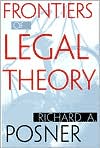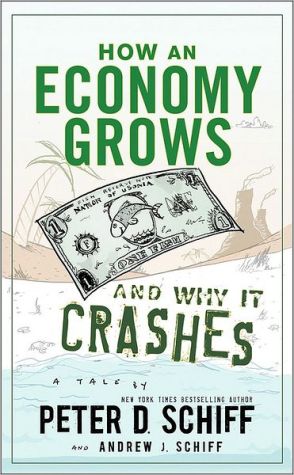Frontiers of Legal Theory
The most exciting development in legal thinking since World War II has been the growth of interdisciplinary legal studies—the application of the social sciences and the humanities to law in the hope of making law less formalistic, more practical, better grounded empirically, bettered tailored to social goals. Judge Richard A. Posner has been a leader in this movement, and his new book explores its rapidly expanding frontier. The book examines five principal areas or directions of...
Search in google:
The most exciting development in legal thinking since World War II has been the growth of interdisciplinary legal studies—the application of the social sciences and the humanities to law in the hope of making law less formalistic, more practical, better grounded empirically, bettered tailored to social goals. Judge Richard A. Posner has been a leader in this movement, and his new book explores its rapidly expanding frontier. The book examines five principal areas or directions of interdisciplinary study: economics, history, psychology, the epistemology of law and the empirical study of law. These approaches are seen to interpenetrate and to compose a coherent body of legal theory—a unified framework for understanding such seemingly disparate phenomena as the economics of free speech, the intellectual history of economic analysis of law, the relation between income and liberty, the law of possession, the psychology of legal decisionmaking, the role of emotion in law, and the use of citation analysis to evaluate judges and law professors. The book carries on Posner's project of analyzing the law as an institution of social governance. Library Journal As both a federal judge and an author, Posner is well qualified to provide us with this timely overview of the leading trends currently guiding American legal thought. Promoting the concept of legal theory as a unified field of social science, the author delineates five areas for particular scrutiny: economics, history, psychology, epistemology, and quantitative empiricism. Posner cleverly argues for the transformation of the practice of law to an academic discipline by noting some of the inherent advantages. Such an approach, for example, offers a neutral standpoint on politically controversial legal topics. Legal disputes arising in such diverse areas as bankruptcy, contracts, and torts can, in this context, be illuminated, refined, and rectified upon referral to principles of economic efficiency and cost containment rather than to more traditional courtroom techniques such as fiery rhetoric. An empirical approach to the law can, the author claims, shed new light on issues such as campaign finance reform, free speech, and regulation of the Internet. The reliability of testimony is frequently crucial to the ability of the legal system to ascertain the facts of a dispute. Skeptics about testimony are therefore bound to be skeptical about the factual accuracy of verdicts. Posner devotes much attention to the comparative advantages of the adversarial vs. the inquisitorial system. This book is heavy reading, intended primarily for those with a high level of academic interest in the law. Recommended for advanced academic and law libraries only. Philip Y. Blue, New York State Supreme Court Criminal Branch Law Lib., New York Copyright 2001 Cahners Business Information.
Introduction1IEconomics1The Law and Economics Movement: From Bentham to Becker312The Speech Market623Normative Law and Economics: From Utilitarianism to Pragmatism95IIHistory4Law's Dependence on the Past1455Historicism in Legal Scholarship: Ackerman and Kahn1706Savigny, Holmes, and the Law and Economics of Possession193IIIPsychology7Emotion in Law2258Behavioral Law and Economics2529Social Norms, with a Note on Religion288IVEpistemology10Testimony31911The Principles of Evidence and the Critique of Adversarial Procedure33612The Rules of Evidence380VEmpiricism41113Counting, Especially Citations411Acknowledgments443Index447
\ Library JournalAs both a federal judge and an author, Posner is well qualified to provide us with this timely overview of the leading trends currently guiding American legal thought. Promoting the concept of legal theory as a unified field of social science, the author delineates five areas for particular scrutiny: economics, history, psychology, epistemology, and quantitative empiricism. Posner cleverly argues for the transformation of the practice of law to an academic discipline by noting some of the inherent advantages. Such an approach, for example, offers a neutral standpoint on politically controversial legal topics. Legal disputes arising in such diverse areas as bankruptcy, contracts, and torts can, in this context, be illuminated, refined, and rectified upon referral to principles of economic efficiency and cost containment rather than to more traditional courtroom techniques such as fiery rhetoric. An empirical approach to the law can, the author claims, shed new light on issues such as campaign finance reform, free speech, and regulation of the Internet. The reliability of testimony is frequently crucial to the ability of the legal system to ascertain the facts of a dispute. Skeptics about testimony are therefore bound to be skeptical about the factual accuracy of verdicts. Posner devotes much attention to the comparative advantages of the adversarial vs. the inquisitorial system. This book is heavy reading, intended primarily for those with a high level of academic interest in the law. Recommended for advanced academic and law libraries only. Philip Y. Blue, New York State Supreme Court Criminal Branch Law Lib., New York Copyright 2001 Cahners Business Information.\ \








